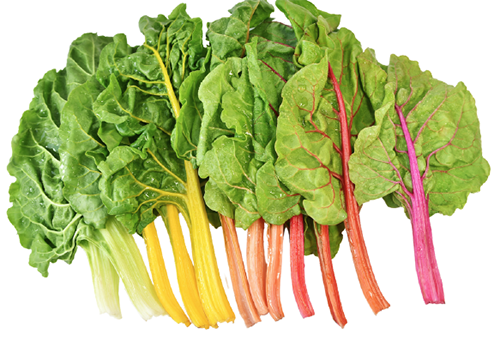
Rainbow Swiss Chard has large dark green leaves with a mix of vibrant green, white, red, gold, and magenta stalks. Leaves and stalks have a hearty spinach flavor.
Whether eaten raw in a salad or sautéed with butter and garlic, this colorful Swiss chard shines through with a hearty flavor similar to spinach. This variety is considered a superfood for the dense nutritional value it offers.
Start seeds in trays indoors with supplemental heat for best germination. Transplant seeds in warm soil, in a location that will receive part shade to full sun (more sun is best). Swiss chard does not require a lot of upkeep, but be sure the soil is adequately moist with even watering.
Begin harvesting outside leaves when plants are 6–8 inches tall.
Pick up to one-third of the outer leaves as needed, and let more leaves grow from the center of the plant. If desired, harvest the whole plant 2 inches above ground, and it will grow back. Pick very young leaves at 2–4 inches for using fresh in salads.
Since Rainbow Swiss Chard is wind-pollinated, be sure to separate them from other varieties of chard and beet by at least two miles to preserve genetic purity. Chard plants must weather the winter in order to produce seed. Dig up the roots and store them in sand, without the roots touching, in a cool and humid location; replant in early spring and the plants will go to seed. Wait until seed heads are fully grown and dry before removing them. The seeds will readily come off the stems after they are completely dry. Store seeds in a cool, dry place for up to five years.